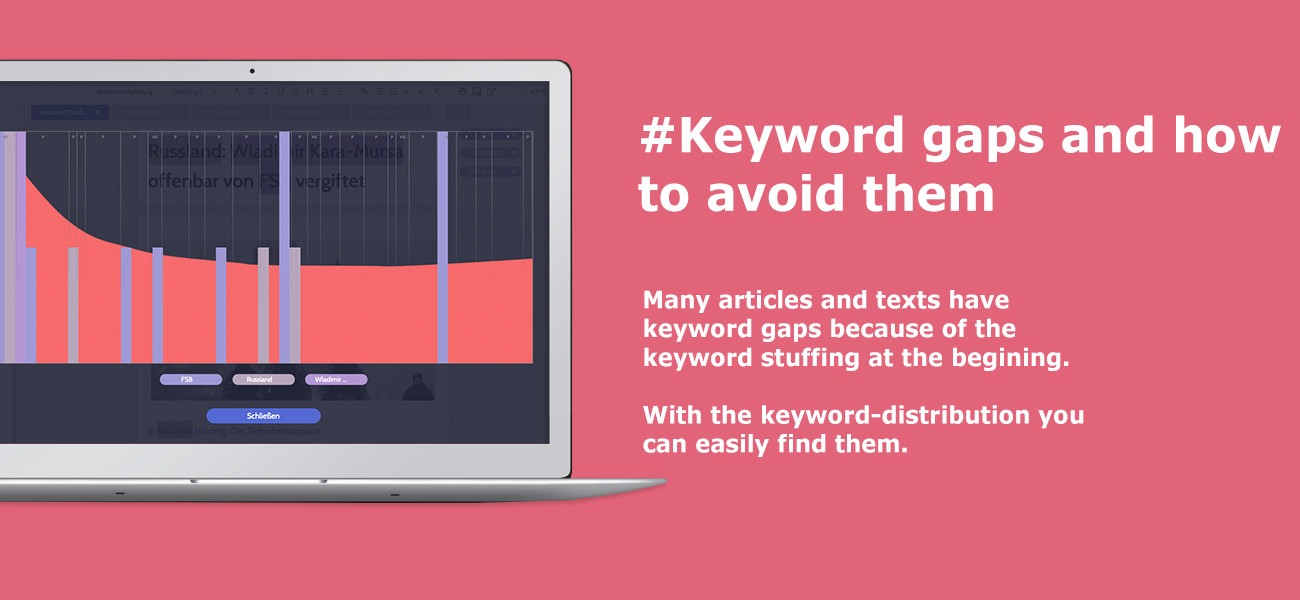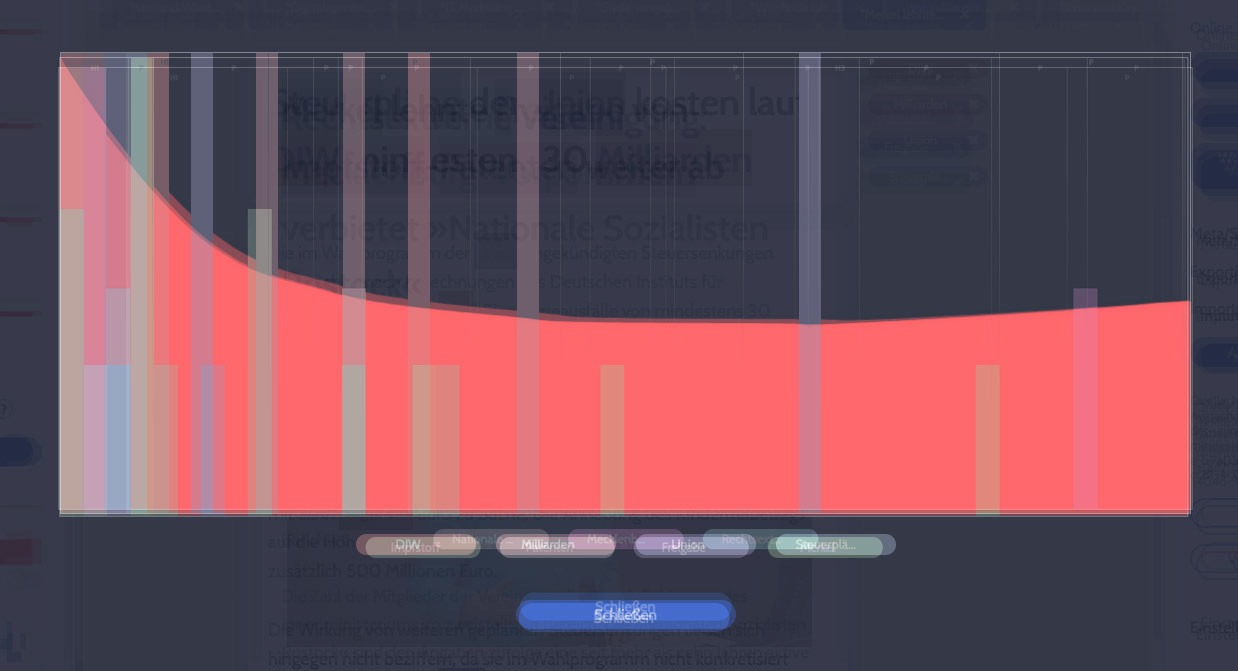| |
1810
0
What are keyword gaps?
Keyword gaps occur quickly when SEO copywriters only pay attention to keyword density, but not to keyword distribution. This can happen quickly. So Google advises SEO copywriters, journalists and bloggers to summarize their content already in the headline or website title (meta). This means that the most important keywords of the text must be in the headline.

In addition, experienced SEO experts know that the main keywords must be in the title, but also at the beginning of the text. This keyword stuffing at the beginning of the text leads to the most important keywords bundling, but also quick identification.
We have examined some online articles (in our keyword distribution) for their most important keywords, superimposed them and could confirm exactly this phenomenon. Of course, this does not apply to all texts – in some industries it varies more or less.

Unfortunately, many SEO copywriters do not realize that this unintentionally opens up keyword gaps, i.e. keyword holes. The duty has been fulfilled, the keywords have been inserted in the appropriate place and the tool says that the keyword density is good. But what about the keywords in the middle or back text area. Can these areas be neglected?
We believe that you should not ignore these keyword gaps. Because they are often caused by inattention, structural problems, wrong SEO optimization or poor copywriting skills.
What are the reasons for keyword gaps?
One of the most common causes of keyword gaps is certainly that the topic was mentioned at the beginning and now you turn to the background information. Especially in the journalistic field, you work your way down from the most important information to the less important. This inevitably leads to the fact that text, content and keywords can suddenly change.
In some industries, such as movie reviews, it is unusual to permanently mention the movie title. Unless you’re talking about the “Avengers,” but longer titles such as “The Unbearable Lightness of Being” aren’t constantly mentioned. Why should they? The reader knows what is being talked about. Much more important to him or her is the background information about the shoot, the actors, etc. This is another reason why the main keywords are hardly used or not used at all.
How Google deals with keyword gaps, we can only guess. Presumably, they are recognized, but whether they have any weight in the ranking is not known. Nevertheless, keyword stuffing at the beginning of the text could cause Google to consider the text as not comprehensive and relevant.
When keyword gaps become content gaps
It’s much worse when we notice that keyword gaps have crept into our text, but only because we’ve digressed from the topic.
So a topic might start out being about bitcoins and cryptocurrency, but as the text progresses we end up with real estate financing and gold as an investment. This may all fit thematically under finance, but in doing so we violate one of Google’s golden rules:
Content should always serve the user’s desire for information!
This means: If we promise the user apples, we must not offer him pears and bananas all at once, even if all this falls under fruit and there may be thematic connections.
This creates content gaps, i.e. a lack of suitable content. If we recall the structure of Aristotle’s rhetoric, we learn that the most important components of a speech are as follows:
- The introduction of the topic (assertion)
- The explanation or the proof (of what is said) with evidence.
So, if we include the topic of apples in the beginning, we should cover the topic of apples in the rest of the text and avoid other areas. You can also think of a good SEO text as a lawyer’s plea: “My client is innocent and I’m about to explain why that is so …”
Other approaches we like to use are, for example, the cause-solution principle: Jeamand has a problem and we now explain the solution.
By the way, this principle is often used in advertising. The customer has a problem, such as laundry that won’t get clean. But luckily there’s Ariel, which makes everything clean again.
In short, no matter what SEO texts you are writing, check if you have keyword gaps or even content gaps and for what reasons. Maybe they are justified, maybe not. But you should be aware of it. Because you are the professionals.
You can learn more about keyword distribution here:
The meaning of keyword distribution
